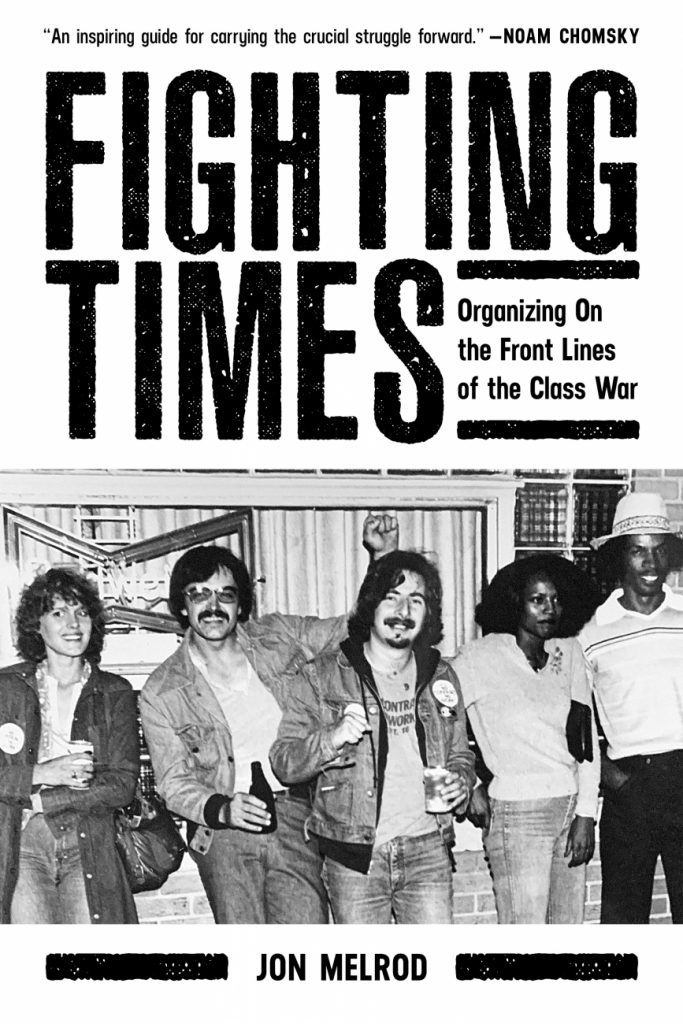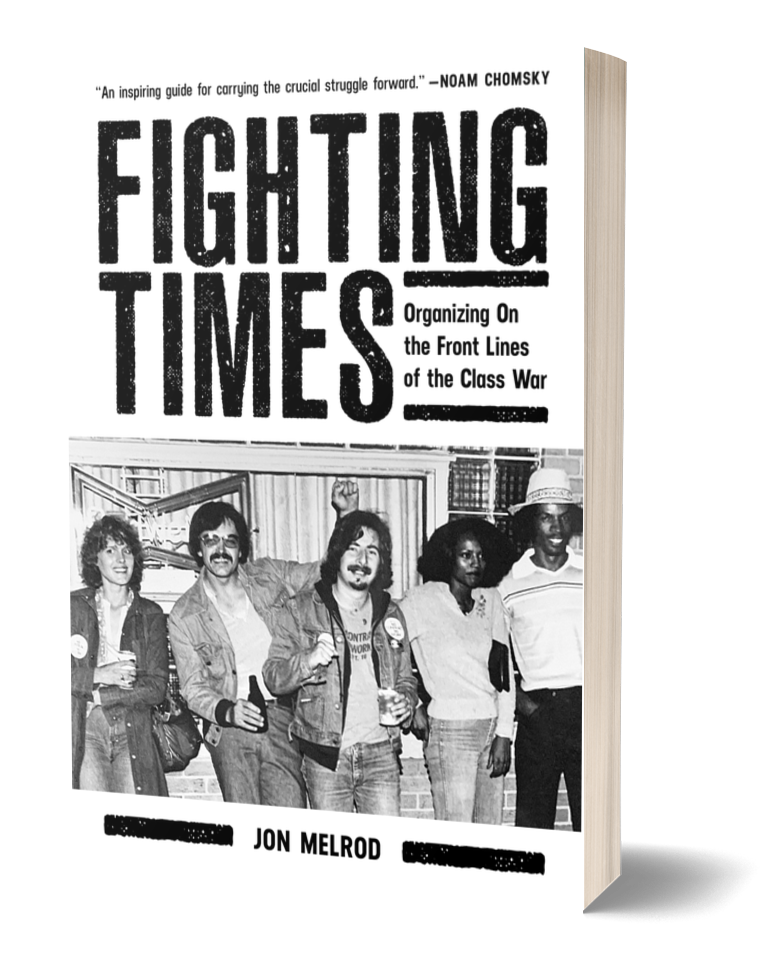By Gabriel Kuhn
Left Two Three
November 1st, 2022
A review of Jon Melrod, Fighting Times: Organizing on the Front Lines of the Class War, (Oakland: PM Press, 2022).
Fighting Times is the autobiography of a left-wing radical who, in the early 1970s, leaves the university campus and hits the factory floor for “Organizing on the Front Lines of the Class War”, as the subtitle suggests. Raised in a Jewish neighborhood in Washington, DC, Jon Melrod becomes a union militant in various industries. The title of his memoir refers to a key effort, a decade-long involvement in the United Auto Workers Local 72 at the American Motors Corporation plant in Kenosha, Wisconsin.
It was interesting to read Melrod’s account from a European perspective. Many German militants chose a similar path in the 1970s. There are some autobiographical accounts, as well as the overview Frühschicht: Linke Fabrikintervention in den 70er Jahren (2011) by Jan Ole Arps. While the circumstances were different, the intention was the same: to organize with working-class people rather than to talk about them, and to gain practical experience in the struggle of the class rather than to lay out theoretical blueprints for what ought to be done. A modern-day example, even if based on different ideological foundations (less MLM, more operaist) has been presented in the Angry Workers’ book Class Power on Zero Hours.
The transition from the activist bubble to the workplace is not always easy, and Melrod doesn’t pretend it to be. Fantasies about “mobilizing the masses” quickly dissolve, a Nazi coworker points a gun at you, and your new date spouts racial slurs when suspecting you of flirting with a black co-worker. At the core of Melrod’s both enlightening and entertaining account is the coming-together of very different people in the class’s interests, the basis of revolutionary politics.
Melrod’s account also proves that accusations of “workerism” or “economism” are often short-sighted when leveled at militants who have made the choices he has made. You won’t find an industrial-proletarian tunnel vision when turning the pages. Melrod and his comrades were active in many ways, from distributing the Black Panther Party newspaper to joining American Indian Movement members in their fight for a health clinic on the Menominee Reservation in Wisconsin’s northeast.
Melrod, who has survived pancreatic cancer possibly related to working in plastic injection-mold factories and tanneries, also runs a website that provides additional information to his 320-page book. Both book and website are highly recommended!
In the book’s epilogue, Melrod mentions that he has met his wife Isabel while working with GABRIELA, a women’s rights party in the Philippines as well as an international network of Filipina workers overseas. When, in 2021, I represented the international committee of my union (the SAC, Swedish syndicalists) at the fortieth anniversary of Copenhagen’s activist haunt International Forum, GABRIELA members were among the co-speakers. The struggle cuts across national borders and generations, and, despite the dire times we’re living in, hope remains. Or, as Melrod, writes: “I’ve seen again and again what disempowered people – students, community members, women, people of color, and workers – can do when they join forces. That is awe-inspiring.”







